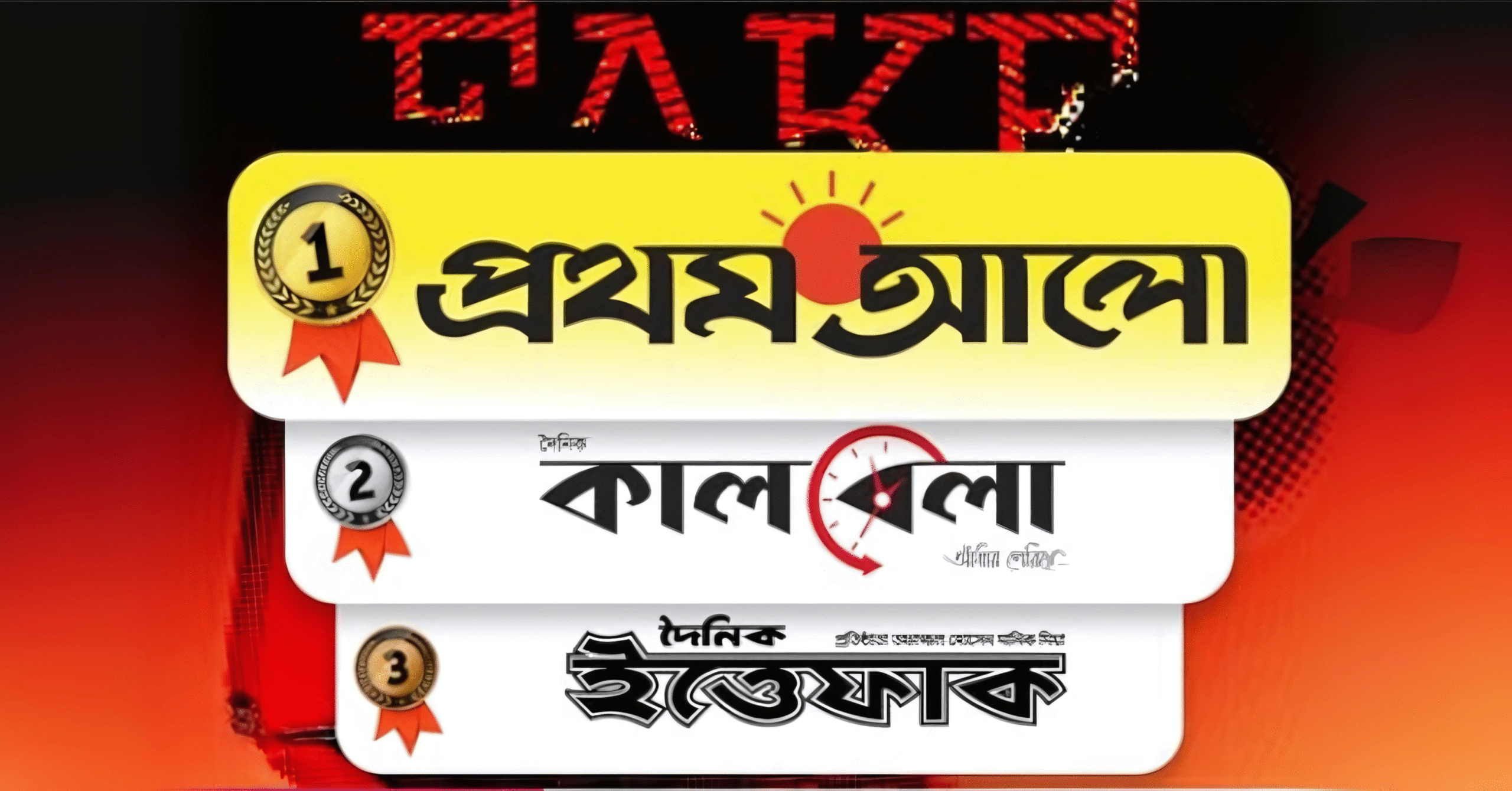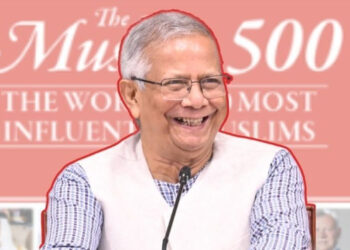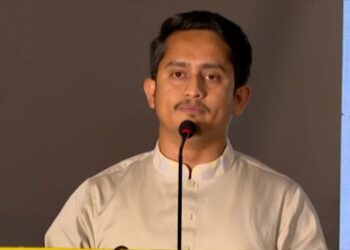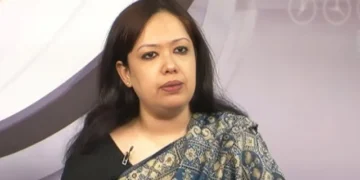In an age where clicks drive content and viral headlines dominate the digital arena. By revealing fake news, truth is becoming an endangered commodity, especially in Bangladesh’s media landscape.
A newly presented research report has shaken the very foundation of mainstream journalism by naming the country’s most prominent newspapers for repeatedly publishing and then retracting fake news.
Among them, Prothom Alo has topped the list as the number one media outlet for retracting fake news after publication. It is followed by Dainik Kalbela in the second position and Dainik Ittefaq in the third. These findings are part of a study presented on Saturday morning at a seminar hosted by the Press Institute Bangladesh (PIB).
Who Conducted the Research and What It Revealed
The study was conducted by Mamun Ur Rashid, a media consultant working under the EBLICT project (Enrichment of Bangla Language in Information and Communication Technology) of the Bangladesh Computer Council.
Titled “The Recent Trajectory of Misinformation in Bangladeshi Media”, the report emphasized that since the mass student and public protests on August 5, 2024, the trend of publishing fake news has soared. Even top-tier mainstream media outlets have not been immune to this trend.
Mamun’s research spanned from January to June 2025 and employed multiple methodologies, including scraping data from fact-checking sites and analyzing 694 distinct “dead links” (news that were later removed or taken down).
What Is Driving This Surge in Fake News?
Unfortunately, the response suggests commercial objectives. The majority of fake news, according to the research, is purposeful and motivated by the goal to go viral and generate advertising money rather than being the result of an accident or poor decision.
Mamun states,
“Media houses are increasingly leaning toward publishing shocking, controversial content, even if it compromises truth. Because that’s what grabs attention and earns clicks.”
This race for virality over veracity has resulted in an alarming shift in journalistic priorities, where truth takes a backseat to trending topics.
Media Outlets Involved
Apart from Prothom Alo, Kalbela, and Ittefaq, the study identified several other notable outlets that have had to retract fake news, including:
-
Jugantor
-
The Daily Star
-
Dhaka Post
-
Bangla Tribune
-
bdnews24.com
This widespread issue highlights a structural failure in editorial accountability and fact-checking, even among reputed names in the industry.
Read More: Gwada Negative: The World’s Rarest Blood Type Discovered in a Single French Woman
Elections May Worsen the Situation
In his keynote speech at the seminar, Fayez Ahmed Tayyeb, Special Assistant to the Chief Adviser, voiced deep concern over the potential for massive misinformation during the upcoming national elections.
He noted that:
“From political parties to individual candidates, fake news will be weaponized to manipulate public opinion and votes. And with the rise of AI-generated content and deepfakes, this threat is more real than ever.”
বানোয়াট ও চাঞ্চল্যকর তথ্য মানুষ বেশি পছন্দ করে, তাই অনেক গণমাধ্যম আর্থিকভাবে লাভবান হওয়ার জন্য ইচ্ছাকৃতভাবে বানোয়াট তথ্য ছড়ায়।
৫ আগস্টের পর সামাজিক যোগাযোগ মাধ্যমে আওয়ামী লীগের উপস্থিতি অনেকটাই বেড়েছে। যার বিপরীতে সামাজিক মাধ্যমে বিএনপিসহ বিরোধীদের উপস্থিতি প্রায় অর্ধেক বলেও দাবি করেন তিনি।
Fayez also pointed out that fabricated, emotionally charged information spreads more rapidly than factual, nuanced reporting making it an appealing tool for political manipulation.
Interestingly, the research also highlighted the changing dynamics on social platforms:
-
Since August 5, 2024, Awami League’s social media presence has nearly doubled.
-
In contrast, opposition parties like BNP have seen their digital visibility shrink by almost half.
This asymmetry suggests a power imbalance in how narratives are controlled and disseminated online, further complicating the fight against misinformation.
The consequences of this trend are stark. If mainstream outlets continue to prioritize sensationalism over facts, they risk losing their credibility altogether.
“When legacy media loses public trust, alternative sources like vloggers, bloggers, and content creators fill the vacuum,” Fayez warned.
মূলধারার গণমাধ্যম বিশ্বাসযোগ্যতা হারালে সে জায়গাটা নেবেন কনটেন্ট মেকার বা ব্লগাররা। তাঁরা বিকল্প গণমাধ্যম হিসেবে দাঁড়িয়ে যাবেন।
While some of these individuals may be responsible voices, many are unregulated and untrained, leading to an even deeper rabbit hole of misinformation.
The seminar concluded with a unanimous call for investment in digital verification systems, fact-checking tools, and journalistic training.
Faruk Wasif, Director General of PIB, presided over the seminar and gave a powerful closing remark:
“The state had turned into a factory of lies, and the media had become its salesman. If we do not break out of this mindset, the entire nation will plunge into a credibility crisis.”
Wasif also criticized the past 15 years of authoritarian rule, under which, he claimed, the media lost its spine and integrity, echoing the need for institutional reform.
Fake news’s ascent in Bangladeshi media is a national catastrophe rather than merely a journalistic mistake. The basis of a free and informed society is being undermined by the propensity to prioritize virality over truth, as this study makes abundantly evident.
Policymakers and media owners need to act quickly and forcefully to combat this. It is imperative to invest in technology safeguards, training, and fact-checking.
Because in the war between truth and trend, if truth keeps losing, democracy itself is at stake.
Share via:


















